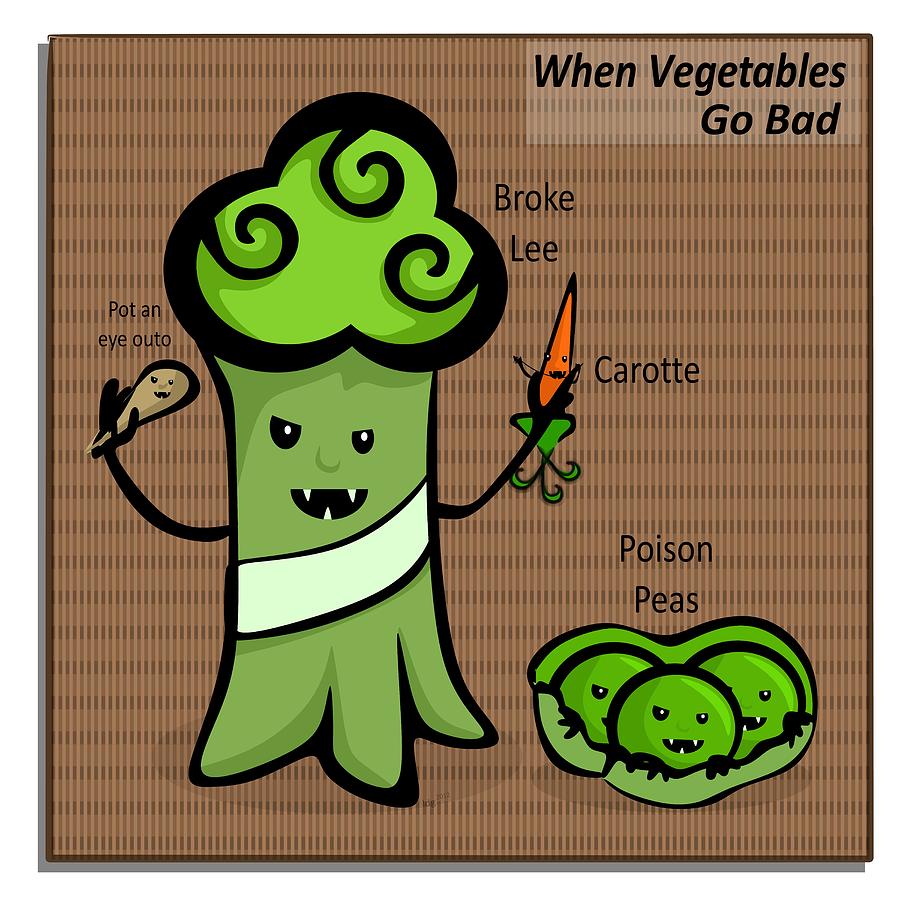Idiom: to go bad; used as a verb
First Example:
First Example:
Christina: What is that awful smell?
Russell: Rotting vegetables - it's in the trash.
Christina: Why do you have rotting vegetables?
Russell: I forgot some vegetables in the back of the fridge and they went bad. I think they were in there for like 6 months. Some of them turned black.
Christina: Why don't you take the trash out
so the smell doesn't get worse?
Russell: You know, that's a good idea.
Meaning: When something "goes
bad," it means that it becomes rotten, evil, or bad in some way. The most common use of the expression is the
one above, when describing food that was good but has "gone bad" and
become rotten or stale. In the example above,
Russell says that the apples "went bad" because he left them in the
fridge too long.
In addition, "go bad" used
to be commonly used for once-good people who started doing bad things, such as criminals. A college student who started selling
drugs might have been referred to as "a good boy gone bad" in the past, although many people would now laugh at that usage for being old-fashioned.
This meaning is also the basis of the expression
"break bad," which is used to describe a person who has chosen a life
of crime. This expression is a regional
expression, which means that only people from a certain place commonly use it, but the expression has
recently become famous thanks to the popular television show "Breaking Bad,"
which is about a High School Chemistry teacher who started making illegal
drugs.
This idiom is from LSI's new edition
of "Reading Horizons," which will be used in the Level 6 Reading
classes. For more information, please visit http://www.languagesystems.com/

